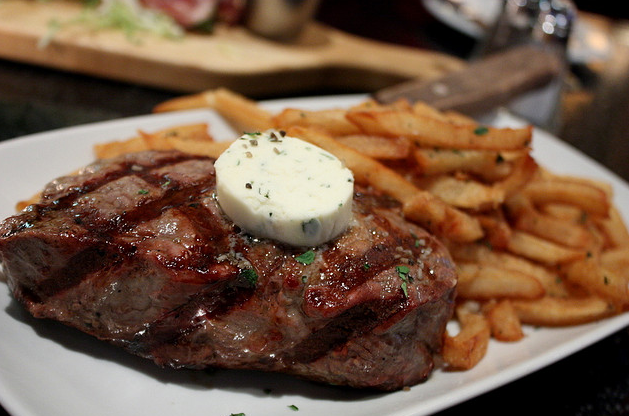What Your Cravings Are Telling You

By:
Food is essential to our existence — and in recent years meals have become an experience for the sense. But what's behind our food preferences?
Personal associations with different foods and physiology both play a role. According to Marcia Pelchat, who researches food preferences at the Monell Chemical Senses Center, we're programmed to dislike certain tastes and love others. This puts the tongue in the role of screening out foods that go into the body.
“We as primates are born liking sweet and disliking bitter,” Pelchat told The Washington Post in 2011.
 Flickr/Ralph Daily - flickr.com
Flickr/Ralph Daily - flickr.com
RELATED: The Science Behind Why Some People Can Taste Words
Our taste buds associate sweetness with energy, sourness with something that wasn't quite ready be consumed, savory with protein, saltiness with helping the body function, and bitterness with danger since poison is bitter.
Research has also shown that your food preferences might be associated with what your mother ate while you were in the womb. The flavors from these foods get through to us via amniotic fluid and breast milk after we've been born, enabling babies to form associations and memories with these flavors before birth, according to Julie Mennella, a researcher at the Monell Chemical Senses Center.
Mennella told NPR in 2011 that this has previously been seen in rabbits and that she decided to test it on babies. She divided pregnant participants into three groups: one drank carrot juice every day during their pregnancy, the second drank it while breastfeeding, and the third was asked to not eat carrots at all. When the children of these women were old enough to consume solid foods, the researchers gave the kids cereal made either with water or carrot juice and filmed the kids' reactions as they ate.
"And just like the European rabbit, the babies who had experienced carrot in amniotic fluid or mother's milk ate more of the carrot-flavored cereal," Mennella said. "And when we analyzed the video tapes they made less negative faces while eating it."
Why comfort food gives us so much pleasure.
But there's more to it, in some cases, than just physiology — take comfort food for example. A 2015 study conducted by Sewanee, the University of the South and the State University of New York-Buffalo (SUNY-Buffalo) found a connection between comfort food and people who prepared these foods for us at a young age. So, if someone had a positive relationship with the person who made steak for them growing up, for example, it's likely that the steak consumer will turn to steak when they're sad. Hence, steak is comfort food to that individual.
 Flickr/Krista - flickr.com
Flickr/Krista - flickr.com
“Comfort foods are often the foods that our caregivers gave us when we were children," Shira Gabriel, an associate professor of psychology at SUNY-Buffalo, said in a release last year. "As long we have positive association with the person who made that food then there’s a good chance that you will be drawn to that food during times of rejection or isolation. It can be understood as straight-up classical conditioning.”
RELATED: Chipotle Just Took yet Another Big Blow
Comfort food, of course, is different for everyone. So while taste is important, the memories to which we connect the food matter more significantly, according to researcher Jordan Troisi, an assistant professor of psychology at Sweanee.
"It’s not just that ice cream, for instance, is really tasty," he told TIME last year. "It’s that someone has developed a really significant meaning behind the idea of ice cream due to their relationships with others, and that’s what is triggering this effect."
Comfort food can also give people a nostalgic feeling of belonging and community. Gabriel told the Atlantic last year that some people turn to food when they don't feel a sense of belonging in other areas of life.
“When [the need to belong is] not fulfilled, you’re driven to fulfill it, in the same way that when you’re hungry, you’re driven towards food," Gabriel said. "So when you feel lonely or you feel rejected, you’re psychologically driven towards finding a way to belong.”
